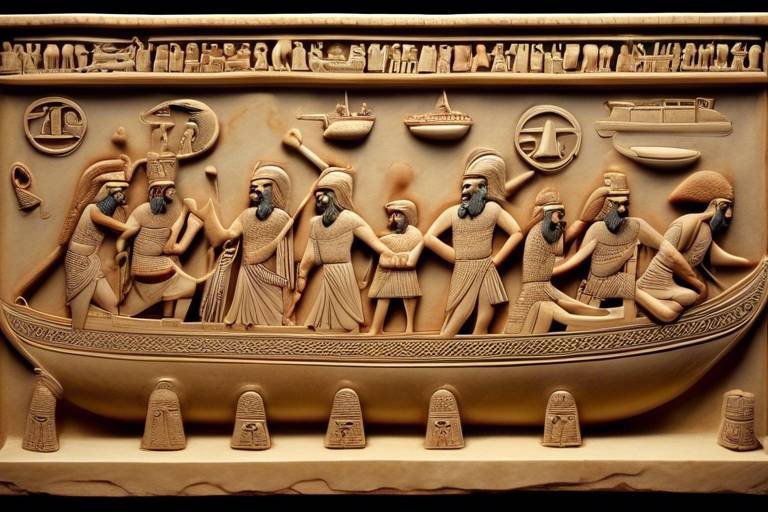The Legend of Atlantis - Searching for Evidence
The Legend of Atlantis has captured the imagination of explorers, historians, and dreamers for centuries. The quest for this mythical island, said to have sunk into the depths of the ocean in a cataclysmic event, continues to fuel curiosity and speculation. From ancient texts to modern scientific theories, the search for evidence of Atlantis has led to a fascinating journey through history and myth.
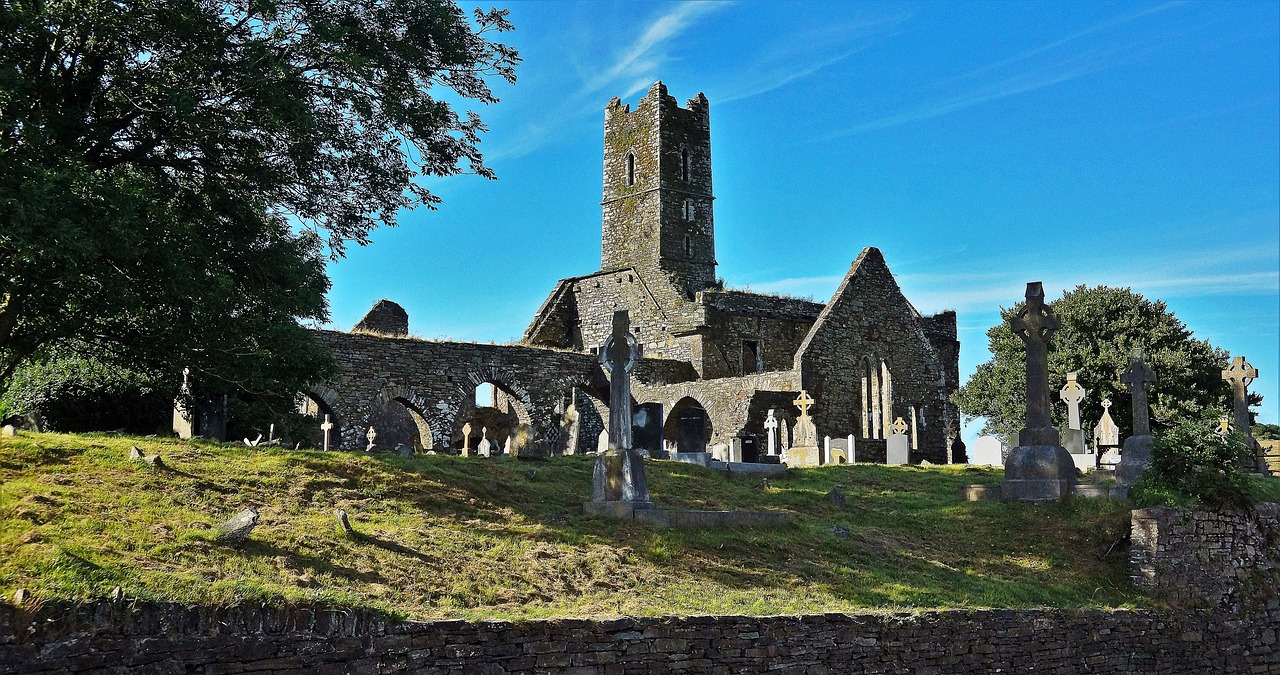
Historical Accounts of Atlantis
The mystery of Atlantis has captured the imagination of scholars, explorers, and dreamers for centuries. Ancient texts and myths from various cultures around the world have alluded to the existence of a magnificent civilization that met a tragic end. Among these accounts, the most famous one is attributed to the Greek philosopher Plato, who described Atlantis as a powerful and advanced island nation that sank into the depths of the sea in a single day and night.
According to Plato's dialogues, Atlantis was a utopian society with impressive architecture, advanced technology, and a sophisticated government. The story of Atlantis was passed down through generations, sparking curiosity and debate among historians and archaeologists. Some believe that Atlantis was a real place, while others dismiss it as a mere allegory or myth created by Plato to convey philosophical ideas.
Despite the lack of concrete evidence, the allure of Atlantis persists, with researchers continuing to search for clues that could validate its existence. Theories abound regarding the possible location of Atlantis, with many pointing to the Atlantic Ocean as the most likely site. The quest for Atlantis remains a tantalizing enigma, inviting us to delve deeper into the realms of history and legend in search of the truth.
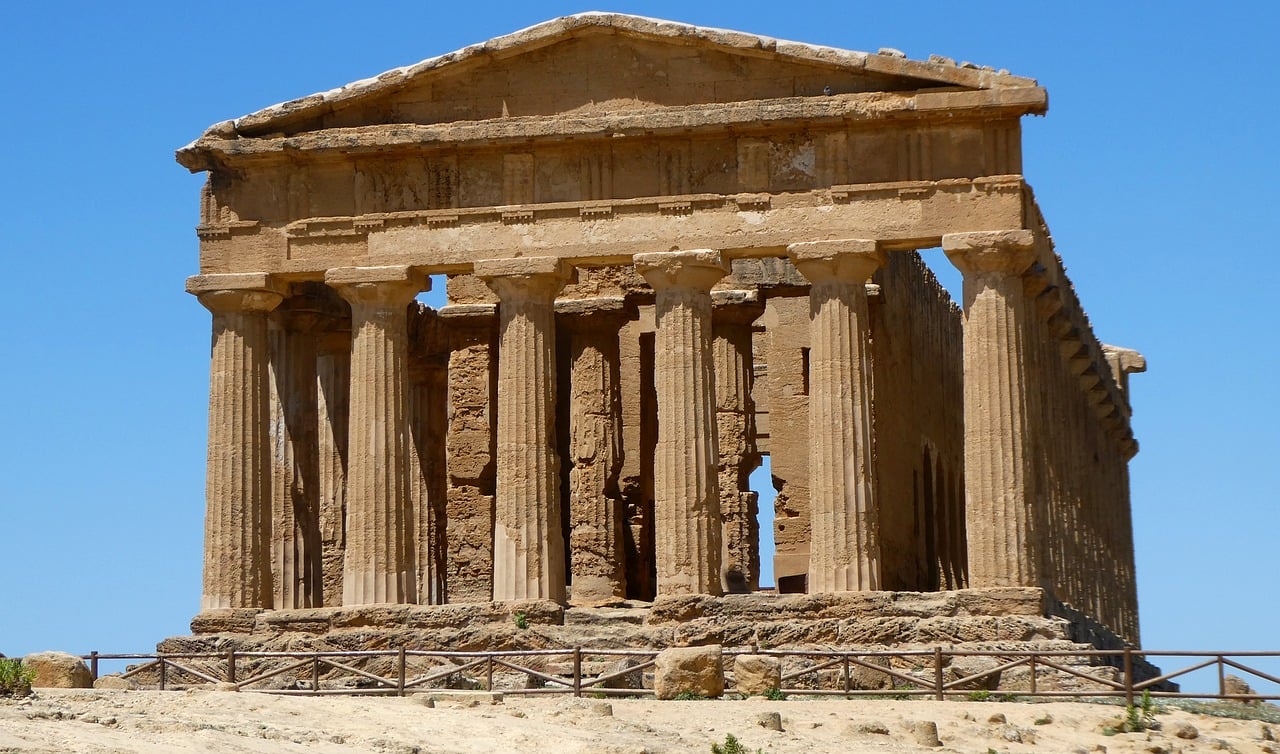
Modern Theories and Speculations
Modern Theories and Speculations surrounding the mysterious lost city of Atlantis have sparked a wide array of scientific and pseudoscientific hypotheses. While some researchers delve into the realms of geology and archaeology to uncover evidence, others explore the possibility of advanced civilizations and technology that could have existed in the ancient world.
One prevalent theory suggests that Atlantis was a highly advanced society with sophisticated knowledge and technological capabilities far beyond its time. Proponents of this idea point to the descriptions of advanced infrastructure and engineering feats in ancient texts as potential evidence of a once-thriving civilization.
On the other hand, skeptics argue that the legend of Atlantis is purely a mythological tale without any basis in reality. They question the feasibility of an advanced civilization existing thousands of years ago and dismiss the idea as mere fantasy.
Despite the lack of concrete proof, the allure of Atlantis continues to captivate the imagination of many, leading to ongoing debates and speculations about its possible existence. The quest for uncovering the truth behind this legendary city persists, fueling both scholarly research and popular fascination with the enigmatic tale.

Geological and Archaeological Research
When delving into the mystery of Atlantis, one cannot ignore the importance of geological and archaeological research in uncovering potential evidence of this legendary civilization. Scholars and explorers alike have scoured the depths of the ocean and studied various land formations in search of clues that could lead to the discovery of Atlantis.
Geological studies have focused on the Atlantic Ocean, where many believe Atlantis might have been located according to ancient texts. Researchers have examined underwater formations such as the submerged islands of the Azores and the Mid-Atlantic Ridge in hopes of finding remnants of a once-great civilization.
Archaeological expeditions have also played a crucial role in the quest for Atlantis. Divers and researchers have explored underwater structures like the Bimini Road off the coast of the Bahamas, which some claim to be part of Atlantis's infrastructure. These investigations aim to uncover artifacts and ruins that could provide tangible proof of the existence of this enigmatic city.
Moreover, geological and archaeological research has sparked debates among experts, with some dismissing findings as natural formations or misinterpretations while others see them as compelling evidence supporting the existence of Atlantis. The meticulous analysis of geological data and the excavation of potential archaeological sites continue to fuel the ongoing search for this mythical civilization.
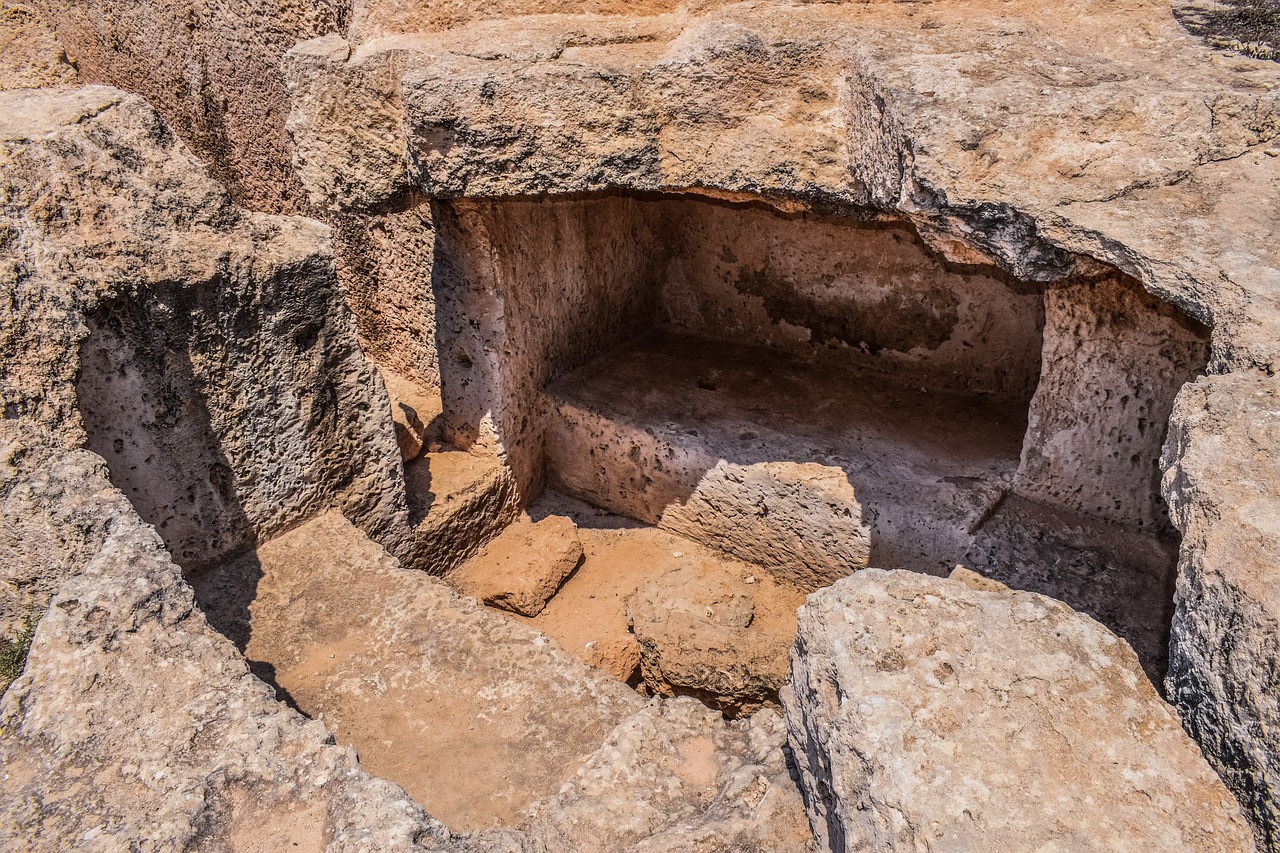
Advanced Civilizations and Technology
When delving into the intriguing legend of Atlantis, one cannot ignore the captivating portrayal of an advanced civilization far beyond its time. According to ancient accounts and myths, Atlantis was said to possess remarkable technological advancements and a sophisticated societal structure that surpassed any known civilization of its era.
Legends describe Atlantis as a utopian society with engineering marvels and scientific achievements that were unparalleled. Advanced tools, intricate architecture, and even the mastery of energy sources beyond comprehension were believed to be part of everyday life in this enigmatic civilization.
Moreover, the inhabitants of Atlantis were said to have possessed knowledge of navigation and seafaring technology that allowed them to explore vast oceans and establish connections with distant lands. The existence of submersible vehicles and underwater infrastructure has been a subject of fascination and speculation among researchers and enthusiasts alike.
Some interpretations suggest that the advanced technology of Atlantis extended to renewable energy sources and environmental sustainability practices, indicating a level of awareness and innovation that defied the norms of ancient civilizations. The possibility of harnessing geothermal energy or utilizing natural resources in a harmonious way with the environment has sparked debates and investigations into the true extent of Atlantis's technological prowess.
While skeptics may question the feasibility of such advancements in a civilization that allegedly existed thousands of years ago, the allure of a society with scientific breakthroughs and cultural achievements far ahead of its time continues to captivate the imagination of modern-day explorers and historians.
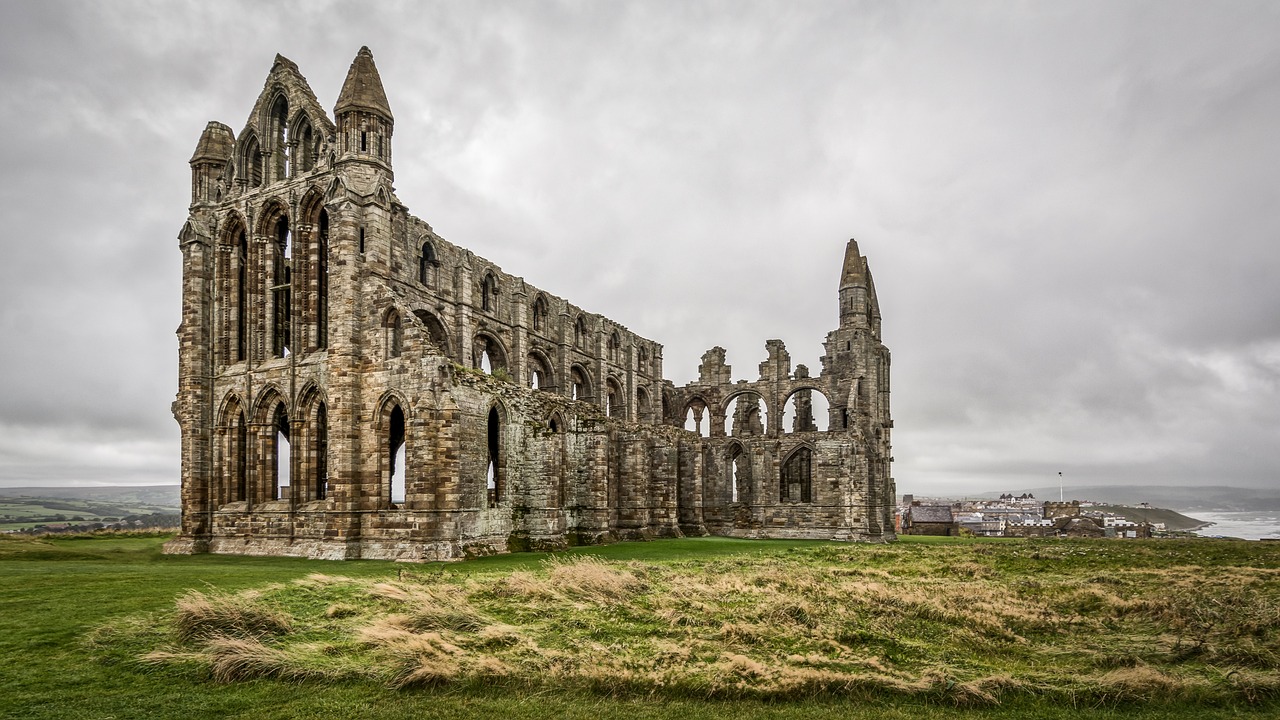
Plato's Account and Criticisms
Plato, the renowned ancient Greek philosopher, introduced the world to the captivating tale of Atlantis through his dialogues, primarily the "Timaeus" and "Critias." In these works, Plato describes Atlantis as a powerful and technologically advanced civilization that existed around 9,000 years before his time. According to his account, Atlantis was a vast island located beyond the Pillars of Hercules, believed to be the Strait of Gibraltar.
Plato's detailed narrative of Atlantis includes intricate descriptions of the city's layout, architecture, and governance. He portrays Atlantis as a utopian society with concentric rings of land and water, showcasing the civilization's sophisticated engineering and organizational prowess. The story of Atlantis, as relayed by Plato, has captured the imagination of historians, archaeologists, and enthusiasts for centuries.
Despite the enduring allure of Plato's account, many scholars and researchers have raised criticisms and doubts regarding the existence of Atlantis. Some argue that Plato's description of Atlantis was meant to be an allegory or a moral lesson rather than a factual record of a lost civilization. Critics point out inconsistencies in Plato's writings and the lack of concrete evidence to support the existence of such an advanced ancient society.
Moreover, the absence of corroborating historical or archaeological findings directly linking to Atlantis has led to skepticism among the academic community. While some theories suggest that geological events or natural disasters could have submerged Atlantis beneath the ocean, the lack of tangible proof has fueled debates and controversies surrounding the authenticity of Plato's account.
Despite the uncertainties and criticisms surrounding Plato's narrative, the mystery of Atlantis continues to captivate the minds of people worldwide. The enduring debate over the existence of this legendary civilization serves as a testament to the power of storytelling and the human fascination with lost worlds and enigmatic histories.
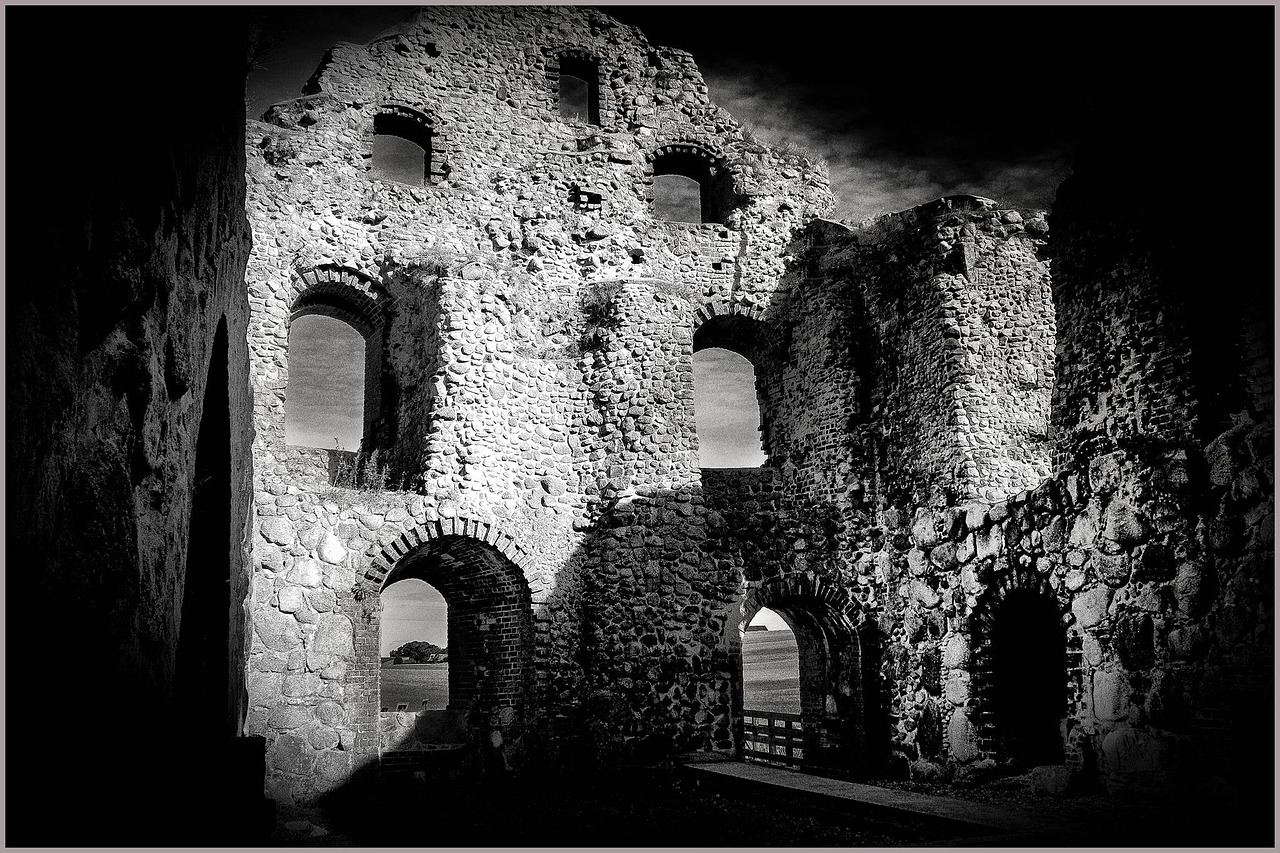
Underwater Expeditions and Discoveries
Embarking on underwater expeditions in search of the mythical lost city of Atlantis has been a thrilling endeavor for many explorers and scientists. These expeditions delve into the depths of the ocean, hoping to uncover remnants of a once-great civilization that has captured the imagination of people for centuries.
One of the most famous underwater discoveries linked to Atlantis is the Bimini Road, a submerged rock formation off the coast of Bimini in the Bahamas. Some believe that these limestone blocks are the remains of a road or wall built by the Atlanteans, while others attribute it to natural geological processes.
Another intriguing expedition took place near the coast of Cuba, where researchers claimed to have found massive stone structures resembling pyramids beneath the ocean surface. These structures have sparked debates about whether they could be part of Atlantis or simply natural formations.
Explorations in the waters around the Greek island of Santorini have also revealed ancient ruins submerged by volcanic eruptions. Some theorists suggest that Santorini could be linked to Atlantis due to its cataclysmic history and advanced Minoan civilization.
Modern technology, such as sonar mapping and underwater drones, has enabled researchers to explore deeper and more efficiently, uncovering sunken cities and artifacts that may offer clues to the existence of Atlantis. Despite the lack of concrete evidence, these underwater expeditions continue to fuel the mystery and allure of Atlantis.

Lost Continents and Mythical Lands
The legend of Atlantis is not the only mysterious tale that has captured the imagination of people throughout history. Stories of lost continents and mythical lands have been woven into the fabric of various cultures, leaving us to ponder their existence and significance. These ancient tales often serve as a reminder of the fragility of civilizations and the ever-present possibility of unforeseen catastrophes reshaping the world as we know it.
One of the most famous lost continents, aside from Atlantis, is Lemuria. Believed to have existed in the Indian Ocean, Lemuria is shrouded in mystery and speculation. Some theories suggest that Lemuria was a land bridge connecting India and Madagascar, while others propose it as the cradle of humanity. Despite the lack of concrete evidence, the allure of Lemuria persists, sparking debates among historians, geologists, and enthusiasts alike.
Another intriguing legend is that of Mu, a mythical land located in the Pacific Ocean. Referred to as the "Motherland of Mu," this civilization is said to have flourished thousands of years ago before being swallowed by the sea. Proponents of the Mu theory point to similarities in ancient cultures across the Pacific region as potential evidence of a shared ancestry originating from this lost continent.
Comparisons between Atlantis, Lemuria, and Mu often draw parallels to the thirst for knowledge and the quest for understanding our past. These tales serve as cautionary reminders of the impermanence of civilizations and the mysteries that lie beneath the waves of our oceans. While some may dismiss these legends as mere folklore, others find solace in the possibility that remnants of these lost lands may one day resurface, offering glimpses into our enigmatic history.

Psychological and Symbolic Interpretations
Delving into the enigmatic depths of the legend of Atlantis unveils not only a tale of a lost civilization but also a rich tapestry of psychological and symbolic interpretations that have captivated the human imagination for centuries. The enduring allure of Atlantis goes beyond mere historical curiosity; it resonates with deeper layers of the human psyche and collective consciousness.
One psychological interpretation suggests that the myth of Atlantis represents humanity's innate desire for a utopian society, a perfect civilization that embodies our ideals and aspirations. The story of Atlantis serves as a mirror reflecting our yearning for a harmonious existence, free from conflict and imperfections.
Symbolically, Atlantis has been viewed as a metaphor for the fragility of human achievement and the consequences of hubris. The sudden and catastrophic downfall of Atlantis serves as a cautionary tale, warning against the dangers of overreaching ambition and unchecked power.
Furthermore, some scholars interpret the myth of Atlantis as a manifestation of the collective unconscious, a symbolic archetype that taps into universal themes and motifs shared across cultures. The image of a sunken city beneath the waves resonates with primal fears and desires, evoking a sense of mystery and wonder that transcends time and space.
As we unravel the psychological and symbolic layers of the Atlantis myth, we are confronted with profound questions about human nature, civilization, and the mysteries of the unknown. The legend of Atlantis continues to spark introspection and contemplation, inviting us to explore the depths of our own consciousness and the hidden realms of the psyche.
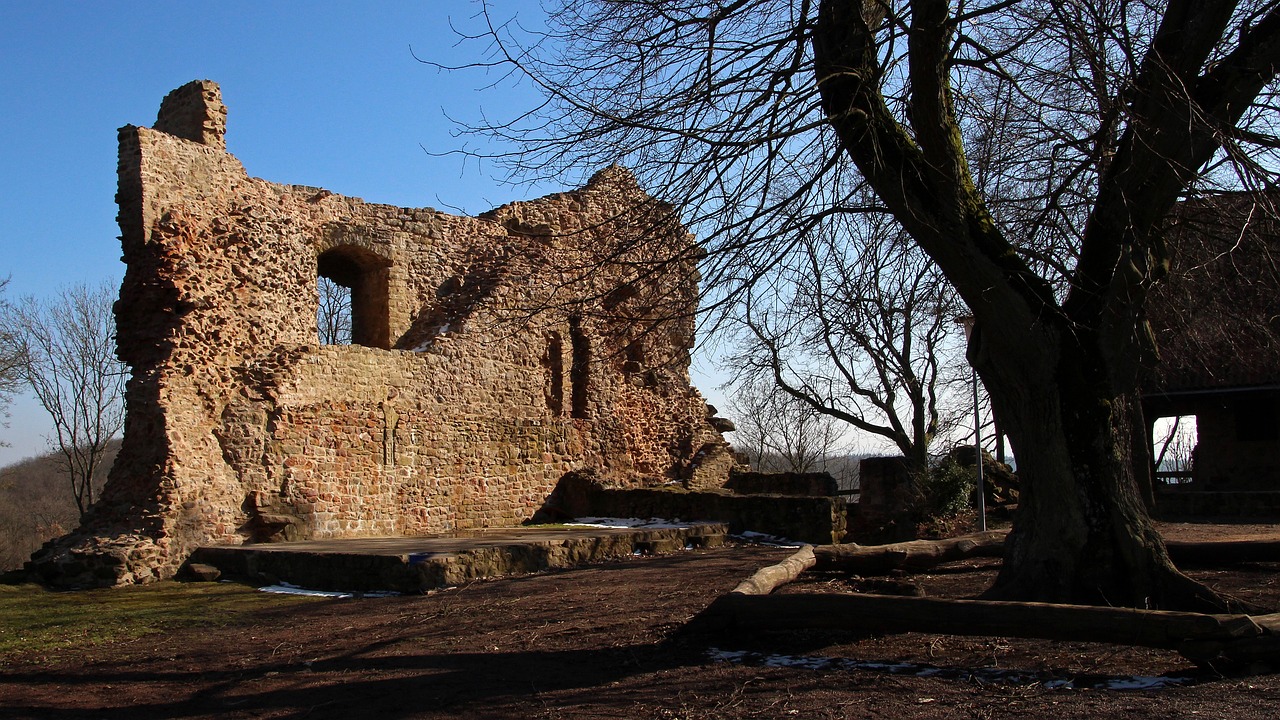
Legacy and Influence of Atlantis
As we delve into the legacy and influence of Atlantis, it becomes evident that this mythical civilization continues to captivate the imagination of people across the globe. The enduring allure of Atlantis extends beyond ancient lore, seeping into modern literature, art, and scientific exploration. The mere mention of Atlantis evokes a sense of mystery and wonder, sparking curiosity and creativity in those who seek to unravel its secrets.
Throughout history, the legend of Atlantis has served as a wellspring of inspiration for countless works of fiction and non-fiction. From Jules Verne's "20,000 Leagues Under the Sea" to contemporary movies and video games, the legacy of Atlantis permeates popular culture, leaving an indelible mark on the collective consciousness.
Moreover, the influence of Atlantis extends into the realm of scientific inquiry, with researchers and explorers embarking on expeditions in search of the lost city. While some dismiss Atlantis as a mere myth, others view it as a tantalizing puzzle waiting to be solved. The quest for Atlantis symbolizes humanity's insatiable thirst for knowledge and discovery, driving us to explore the unknown and push the boundaries of our understanding.
Artists and visionaries have long been inspired by the enigmatic allure of Atlantis, depicting its grandeur and demise in paintings, sculptures, and literature. The myth of Atlantis serves as a cautionary tale, reminding us of the fragility of civilization and the impermanence of power and glory.
Furthermore, the legacy of Atlantis transcends its status as a mere legend, sparking debates and discussions among scholars and enthusiasts alike. The enduring fascination with Atlantis prompts us to ponder profound questions about the nature of humanity, the mysteries of the past, and the possibilities of the future.
Frequently Asked Questions
- What is the legend of Atlantis?
The legend of Atlantis is a story of a mythical island civilization that is said to have existed thousands of years ago. It has captured the imagination of people for centuries, with many theories and speculations about its possible location and fate.
- Is there any concrete evidence of Atlantis's existence?
While there have been various claims and discoveries that some believe could be linked to Atlantis, there is no definitive scientific evidence to prove the existence of the lost city. The search for Atlantis continues to be a topic of debate among historians, archaeologists, and enthusiasts.
- What role did Plato play in the story of Atlantis?
Plato, the ancient Greek philosopher, is credited with first introducing the story of Atlantis in his dialogues, specifically in the works "Timaeus" and "Critias." His detailed description of Atlantis has been a key source of information for those interested in uncovering the truth behind the legend.
- Have there been any significant underwater discoveries related to Atlantis?
Several underwater expeditions have claimed to have found structures and artifacts that could be linked to Atlantis. However, these findings are often met with skepticism and require further research and analysis to determine their true significance.
- How has the legend of Atlantis influenced popular culture?
The myth of Atlantis has inspired numerous works of literature, art, and film, shaping the way people perceive ancient civilizations and lost worlds. Its legacy continues to spark creativity and curiosity in the modern world.
















